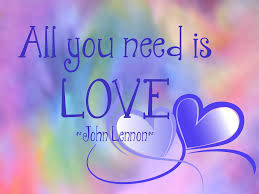
In the midst of maintaining this blog, working on another novel, doing a little freelance work and composing as well as playing music, I wrote a short memoirish piece for a book that has just been released–What Happened to the Hippies? Voices and Perspectives. I’m one of many contributors. The author who created it and assembled the contributors’ articles is Stewart L. Rogers.
The Basic Concept
Stewart writes in his poignant introduction that the years 1970 through 1973 were by far the best time of his life. He had tired of chasing goals that didn’t really matter and trying to fit himself into smaller and smaller boxes. Taking on a new identity aligned with love and understanding, peace and generosity, he saw himself as an authentic pioneer. He knew he had ideals in common with his brothers and sisters of his generation. “Exhilarated with hope, giddy with freedom, turned on with idealism,” he was immersed in a movement that was changing the world.
By 1974, Stewart was being consumed by a world changing him. He found himself caught up in marital chaos and, as he puts it, “a relentless struggle for money.” This went on for 30 years. Finally, he hit bottom and saw he had a choice between death through substance abuse or life through sobriety. He stopped using, seeing his life with a new perspective and clarity. He reinvented himself by combining his old hippie values with real-world experience and the result was a happiness greater than he had ever known.
Thus, the idea for the book was born. He wondered what had happened to others who had shared his journey and values back in the day. This incredible movement, powerful socially and politically and in the arts, had practically disappeared as a societal force. Were those same people out there, living those values and still effecting change? Or were they simply absorbed by the realities of life and the all-consuming Establishment?
The Shape of Things
Stewart reached out through Craigslist across the country, looking for “Old Hippie Writers.” He sought short memoirs from those who responded, detailing a comparison of “what the writer did or believed in the hippie era to what he/she does and believes today.” Over 50 people wrote articles for the book. From these, we begin to see not all was lost from those special times.
The articles were crystallized into 13 categories, making for 13 chapters. They are aptly titled according to their respective subject matter. For instance, some of the chapters are titled “Age of Aquarius,” “Flower Power,” “Free Love,” “Give Peace a Chance,” “I Have a Dream,” and “My Sweet Lord.” Stewart wrote some commentary at the beginning of each chapter.
The book concludes with a chronological summary of events that marked the era, followed by some memorable quotes that shed light on what it was all about.

The Contributors
We were all asked to write a short bio. These appear near the beginning of the book. They should not be skipped. As I read through these, I was taken by the mostly fascinating stories of the lives of those who lived the hippie lifestyle for periods of their lives. Most of them still have a hand in the arts or social justice or volunteering for the good of others. I’m not going to mention any of those who stand out to me because it wouldn’t be fair to the rest who have their own unique and compelling lives. Let it suffice to say that this is quite a surprising assembly of talented people brought together by a cute Craigslist ad.
My Takeaway
I haven’t had a chance to read the entire book yet, as I just received it this past week. The more I read, though, the more I want to immerse myself in it. Stewart’s introductions to the chapters synthesize beautifully the various categories of the hippie experience, or to put it another way, the lifestyles which evolved in the ’60s and ’70s.
I confess that these poignant stories of those who lived somewhat parallel lives to mine mean a great deal to me. I’m moved by what it meant to them. We are brothers and sisters of a generation and perhaps every generation relates to that in their own way. And maybe we baby boomers overestimate just how special and unique we are, but it’s hard to argue with the groundbreaking, enduring music that we produced. The progress in civil rights, women’s rights, gay rights, protection of the environment, freedom of speech, nuclear freezing and more have changed our world in huge ways. Though the pendulum has swung back in the other direction in some of these areas, I believe sanity will prevail in the long run and “hippies” old and young may still have a say in the evolution of our human community.
